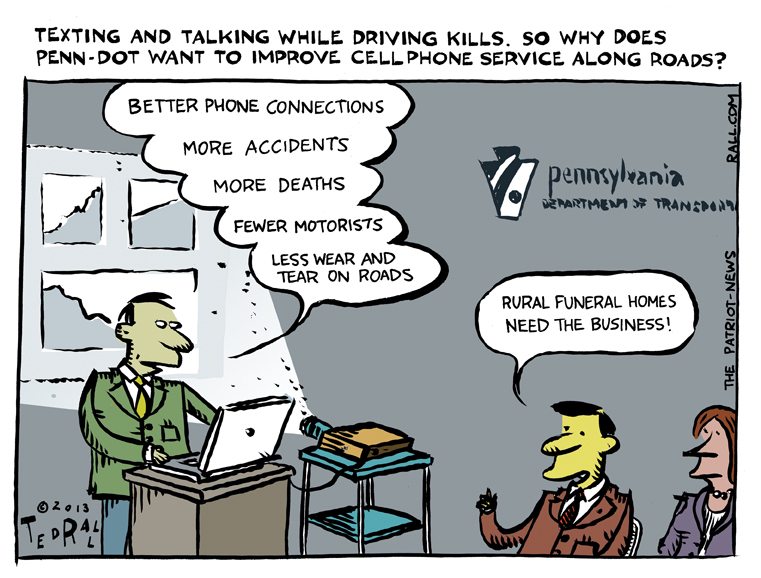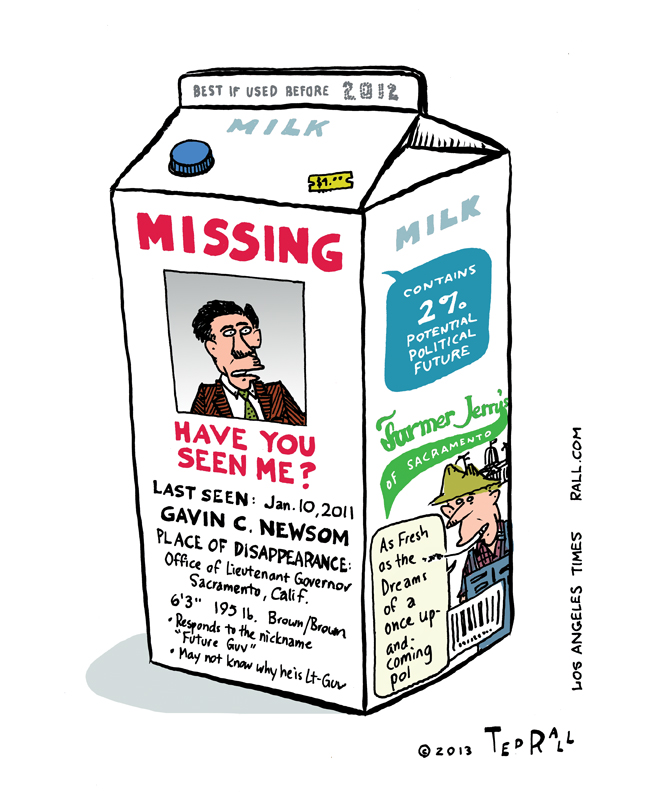Why We Care About Mr. Mushroom Head
Media coverage and thus most over-the-water cooler and cocktail party chit-chat about Anthony Weiner obsessively focuses on what the scandal — or circus, or freak show, whatever it is — says about him. More interesting, yet utterly ignored, is what it says about us.
The historian Richard Hofstadter began his classic book “The American Political Tradition” by quoting the 19th century journalist-economist Horace White. The Constitution of the United States (and by extension the nation’s Ur political philosophy, White wrote, “is based upon the philosophy of Hobbes and the religion of Calvin. It assumes that the natural state of mankind is a state of war, and that the carnal mind is at enmity with God.”
Americans assume that people are basically bad. That, left to exercise their free will, people will usually succumb to their basest impulses. As the Puritan theologian Jonathan Edwards, an ardent Calvinist, wrote: “The God that holds you over the pit of hell, much as one holds a spider or some loathsome insect over the fire, abhors you, and is dreadfully provoked. His wrath towards you burns like fire; he looks upon you as worthy of nothing else but to be cast into the fire.”
If people are scum, it follows that they must be controlled. Americans accept Lord Acton’s aphorism that power corrupts; thus we admire the wisdom of the founding fathers for crafting a system of government based on checks and balances.
A corollary of the assumption that people are inherently bad is that the ability to resist temptation is rare, and thus admirable. George Washington, we are told, stands as a paragon of virtue for retiring, Cincinnatus-like, resisting the siren call of his admirers to stay on as a sort of American king. The perfect American leader is like Washington — self-effacing, self-denying.
When Anthony Weiner, then a relatively obscure, verbally combative New York Congressman, was, um, exposed sending photographs of his genitals via Twitter in 2011, what happened next initially followed a familiar political redemption narrative. He resigned, apologized, and vanished for a while. A little while. Then he gave a pair of carefully crafted interviews that put his attractive wife, and by extension their marriage, front and center.
He apologized again. No more sexting, he promised.
Next he announced his candidacy for the mayoralty of America’s largest city. Though not necessarily a step down in his career, neither was it perceived as an attempt to leap forward.
So far so good. Weiner climbed quickly in the polls, and no wonder: though few people could identify with his proclivity for self-photography, it didn’t seem as serious as actual cheating — boning a young intern in the workplace, for example. New Yorkers are fond of feisty politicians, even more so nowadays when people feel betrayed by a system run by and for the 1%.
As a liberal Democrat, Weiner didn’t face accusations of hypocrisy (c.f., former Idaho Sen. Larry Craig, a “family values” right-wing Republican who bashed gays on the Senate floor while cruising for them in the St. Paul airport men’s room). Anyway, New York is the most liberal city in the country, hardly a bastion of Bible Belt self-righteousness. It didn’t hurt that his principal rival, New York City Council Speaker Christine Quinn, was a singularly unattractive candidate, physically as well as politically. Few New Yorkers have forgotten Quinn’s perfidy in using her City Council to overturn term limits — which had been passed by a wide margin on the ballot — so that her ally, Mayor Michael Bloomberg, could run for a third term.
But then a low-rent website, The Dirty (!) revealed that Weiner had continued his old shenanigans. Not only was he sending out more photographs of his junk to random women online, he was carrying on cheesy virtual relationships with them. As Rachel Maddow said on MSNBC, this was something new: lying in the apology. And things got worse from there. It wasn’t just one woman, maybe it was three or six or whatever, who could really count? These days, the man who would be mayor can’t even say that he has stopped.
With the media, Democratic Party establishment, and even his wife’s mentors, Bill and Hillary Clinton, aligned against him, Anthony Weiner is plunging in the polls. It’s hard to imagine how he could recover by next month’s primary.
When you talk to voters in New York, they’re more amused by than disgusted at what Weiner did. Taking photographs of your penis, after all, is silly. Getting sexually aroused, or expecting women to get sexually aroused, by sexting seems kind of juvenile. It’s a boring kink, like a foot fetish. It isn’t gross, but it’s incomprehensibly goofy. Most people react to this sort of thing with a shrug. Whatever, if it makes you happy. And if his wife’s okay with it, why should we care?
What people really hold against Anthony Weiner is his lack of control. Clearly this man has a compulsion. All he had to do to become mayor of New York City was to stop sexting for 18 months. Clearly he couldn’t help himself.
It’s not the sin. It’s not the sexual proclivities, the unusual desires. It’s his lack of stoicism. His inability to suppress his compulsion.
Like all cultural assumptions, we take this one — our admiration for those who know how to play the game and our contempt for those who can’t/don’t — for granted. But it isn’t universal. Former Italian prime minister and media baron Silvio Burlosconi may well be heading to jail for tax evasion, but Italian voters didn’t give a damn about his prodigious sexual appetites, which manifested themselves at his notorious “bunga bunga” orgies, which featured under-aged prostitutes.
It’s easy to see how the inability to resist one’s primal sexual urges might make one a poor candidate for a position that required top-security clearance, for example. But Mayor of New York? I don’t really know the answer.
If the trash gets picked up on time and the subways run faster and the streets get cleaned and the schools improve, would it matter if the city’s chief executive spends his spare time setting up just the perfect shot for his private parts? If poverty is reduced and development is managed intelligently and the city’s budget gets balanced, would there be much harm in emailing dirty photos of himself to Midwestern floozies?
Like I said, I don’t know the answer. But we should be thinking about these questions — about what our societal priorities ought to be — more than about what is going on in Anthony Weiner’s brain.
(Ted Rall’s website is tedrall.com. His book “After We Kill You, We Will Welcome You Back As Honored Guests: Unembedded in Afghanistan” will be released in 2014 by Farrar, Straus & Giroux.)
COPYRIGHT 2013 TED RALL



